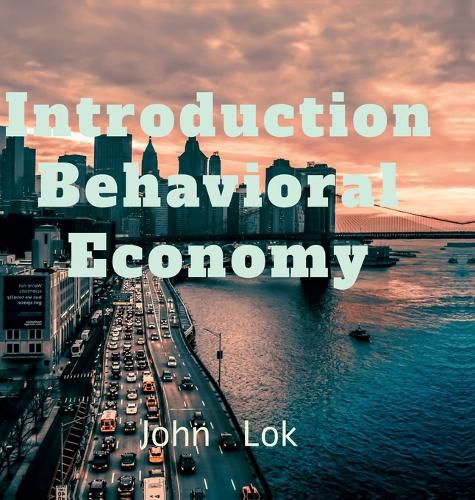Readings Newsletter
Become a Readings Member to make your shopping experience even easier.
Sign in or sign up for free!
You’re not far away from qualifying for FREE standard shipping within Australia
You’ve qualified for FREE standard shipping within Australia
The cart is loading…






This title is printed to order. This book may have been self-published. If so, we cannot guarantee the quality of the content. In the main most books will have gone through the editing process however some may not. We therefore suggest that you be aware of this before ordering this book. If in doubt check either the author or publisher’s details as we are unable to accept any returns unless they are faulty. Please contact us if you have any questions.
Behavioral economics is a field of study aimed at understanding why people make economically irrational decisions. Rational choice theory holds that consumers make choices that maximize their utility.
Behavioral economics combines elements of economics and psychology to understand how and why people behave the way they do in the real world. It differs from neoclassical economics, which assumes that most people have well-defined preferences and make well-informed, self-interested decisions based on those preferences. Behavioral economics (BE) uses psychological experimentation to develop theories about human decision making and has identified a range of biases as a result of the way people think and feel. BE is trying to change the way economists think about people's perceptions of value and expressed preferences. We need behavioural economics to understand the daily life decisions of customers and anyone else. It is used in the health sector, insurance sector, corporates, multi-national companies etc. In all sectors, it has a significant role to play. Companies are inhabiting behavioural economics to rising their sales. How transport may help economic development in possible?
In my this book, I shall indicate our daily fun human behavior to explain how and why our daily lives any matters, may have relationship to behavioral economy to let readers understand.
$9.00 standard shipping within Australia
FREE standard shipping within Australia for orders over $100.00
Express & International shipping calculated at checkout
This title is printed to order. This book may have been self-published. If so, we cannot guarantee the quality of the content. In the main most books will have gone through the editing process however some may not. We therefore suggest that you be aware of this before ordering this book. If in doubt check either the author or publisher’s details as we are unable to accept any returns unless they are faulty. Please contact us if you have any questions.
Behavioral economics is a field of study aimed at understanding why people make economically irrational decisions. Rational choice theory holds that consumers make choices that maximize their utility.
Behavioral economics combines elements of economics and psychology to understand how and why people behave the way they do in the real world. It differs from neoclassical economics, which assumes that most people have well-defined preferences and make well-informed, self-interested decisions based on those preferences. Behavioral economics (BE) uses psychological experimentation to develop theories about human decision making and has identified a range of biases as a result of the way people think and feel. BE is trying to change the way economists think about people's perceptions of value and expressed preferences. We need behavioural economics to understand the daily life decisions of customers and anyone else. It is used in the health sector, insurance sector, corporates, multi-national companies etc. In all sectors, it has a significant role to play. Companies are inhabiting behavioural economics to rising their sales. How transport may help economic development in possible?
In my this book, I shall indicate our daily fun human behavior to explain how and why our daily lives any matters, may have relationship to behavioral economy to let readers understand.